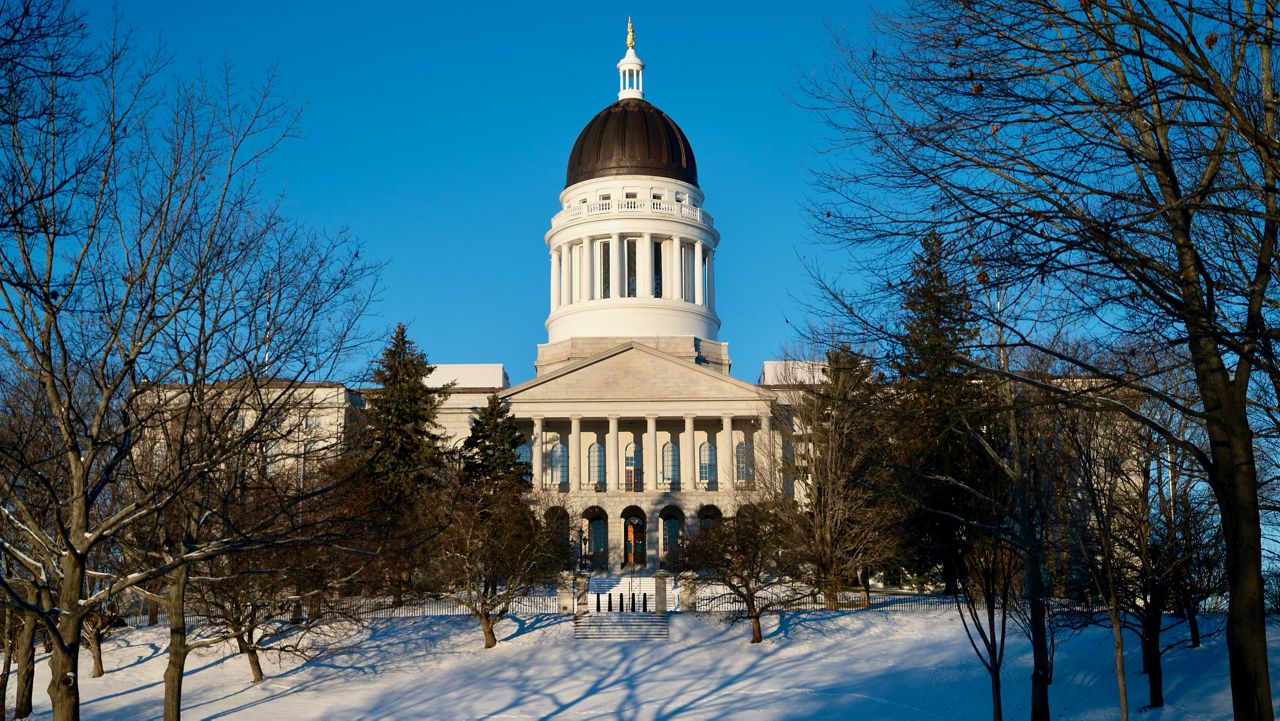With lawmakers returning to Augusta today, Gov. Janet Mills says she is ready to continue efforts to move the state away from fossil fuels, improve the workforce, and figure out how to allocate an $822 million surplus.
“I’m sure there will be 186 different ideas for what to do with those funds,” she said Tuesday during an appearance on “The Maine Take,” a show produced by the Maine State Chamber of Commerce.
The full House and Senate – 186 lawmakers – are expected to attend an in-person session at the State House, one of only two session days set for January. With COVID-19 continuing to spread in the state, the presiding officers announced last month that full session days would be limited in January and all committee meetings would be conducted virtually.
In a 30-minute discussion with chamber President Dana Connors, Mills emphasized her goals for the short legislative session, which is scheduled to run only until mid-April. She described herself as a realist, having served four years on the Appropriations Committee when she served in the Legislature.
And she repeated her interest in sending some of the state surplus back to Mainers.
“I’m anxious to give money back to the taxpayers of Maine in one form or another because I think they deserve it,” said Mills, a Democrat.
For weeks, Republicans have been saying they too want funds returned to taxpayers.
Last month, Senate Minority Leader Jeff Timberlake (R-Turner) told Spectrum News the money should be given back to Mainers who are struggling with higher costs for electricity, heating oil, gas and groceries. He said the current two-year, $8.3 billion budget covers the state’s expenses and that there’s no need to expand programs.
“There’s that much of a surplus because the federal government filled all the holes we had,” he said.
When asked for a preview of 2022, Mills said she wants to continue efforts to discourage the use of oil and gas to heat homes and encourage weatherization.
“We’re going to continue down the path of renewables and off-shore wind and technology to help Maine people become self-sufficient using renewable energy,” she said. “We want to continue helping get Maine people back to work, increasing our workforce participation efforts.”
The second year of a two-year session also heralds the beginning of a new election season, with all legislative seats on the November ballot and this year, a race for governor. Mills, who has yet to officially announce her re-election campaign, is likely to face former Gov. Paul LePage, a Republican who served eight years.
While LePage earned a reputation for vetoing hundreds of bills, Mills too has battled with lawmakers, sometimes even those in her own party. She told Connors that she read about 650 bills last session, signing about 450, letting about 100 go into law without her signature and vetoing 21 of them.
“It was about 3% of the entire slew of bills that reached my desk,” she said. “I hope when people have questions about any action I’ve taken they will stop and read my veto letters. My staff and I really worked hard to articulate exactly what I thought the problem was, even how I thought it might be resolved.”




